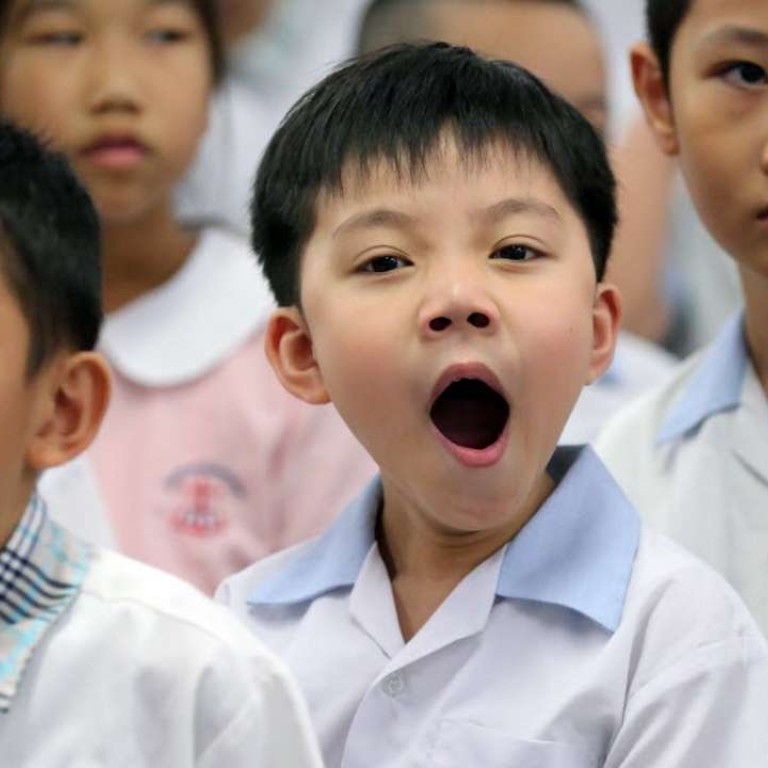
Hong Kong children tend to sleep late, charity survey finds
Experts say heavy school workloads and electronic devices are prompting tardy bedtimes, and this can affect physical and mental development
The Boys’ and Girls’ Clubs Association asked 1,449 children aged six to 17 about their sleeping habits. The survey found most children below 11 slept between 10 and 10.59pm.
Association executive director Lilian Law Suk-kwan sounded a warning about the trend: “When kids are three to five, the brain is at its fastest-growing phase. Without enough rest, their development can be retarded.”
“It can affect their concentration as well as their emotional development. In severe cases it can hinder their intelligence and interaction with people.”
Paediatrician Dr Ng Yin-ming, who is association chairman, recommended that children below 11 should go to bed before 10pm regardless of when the child has to wake up the next day.
“It takes two to three hours to go into deep sleep. Growth hormones [in children] take time to peak – [starting] from 10pm with the peak at 2am – so the peak time is important,” he said.
“If children don’t get enough sleep they have a higher risk of hyperactivity,” said Dr Patrick Ip, associate professor in the department of paediatrics and adolescent medicine at the University of Hong Kong.
As students get older, their bedtime gets pushed back. The survey found 53 per cent of children aged between 12 and 14 slept after 11pm, while those aged 15 to 17 tended to sleep after midnight.
A key factor in children staying up late are electronic devices with screens, such as televisions, computer monitors, smartphones and tablet computers.
The wavelength emitted by these devices, called blue light, can severely disrupt proper sleep patterns.
“Studies have shown blue light can inhibit or suppress melatonin secretion from the pineal gland ... which is responsible for regulating sleep,” Ip said.
According to Ng, children should stop using electronic devices at least one hour before bedtime.
He also recommended parents limit after-school tutorials and extra-curricular activities to three per week, as heavy schedules did not allow children to sleep early.
The Education Bureau should also do its part by reducing assessments, tests and exams, Ng added.
Quantity of sleep is also important. According to the US National Sleep Foundation, children aged three to five, six to 13 and 14 to 17 should get 10 to 13 hours, nine to 11 hours, and eight to 10 hours of sleep respectively.
Meanwhile, a survey by the association found 60 per cent of children aged between six and 17 were “generally happy”. This was a slight increase from last year’s result of 57.1 per cent.

